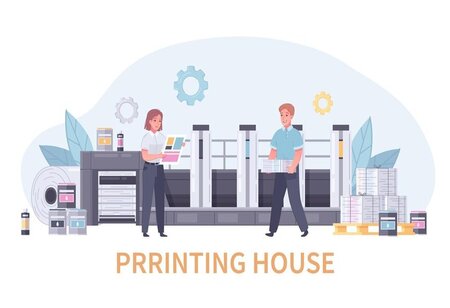Parties Reliance on Digital Media for Public Outreach Affects the Printing Business
The industry center for printing election-related promotional materials, including as banners, posters, flags, etc., was Ludhiana. It used to collect orders from political parties all throughout northern India, but it now says it doesn't have much appeal in the printing industry. Political parties are favoring digital space for their ads, which is the reason for the losses incurred in the printing business.
The printing business is losing orders as a result of politicians favoring Facebook, Instagram, Youtube, and X for their marketing.
The amount allotted for digital space ads is nearly the same as, if not greater than, that for printed materials pertaining to the election. The success of digital media may be attributed to its increased reach through online media and its ability to target specific audiences based on many factors such as age, gender, and region.
Political parties would place orders for posters, banners, flags, cutouts, and other printed materials, and over the course of the previous 20 years, the Ludhiana printing industry would supply all of north India. Even still, there has been a significant drop in orders—nearly 60%—from Punjab, Rajasthan, Haryana, Uttar Pradesh, Jammu and Kashmir, and other states. Owner of Tarun Printers, Tarun Chaudhary
The Tribune went to see a printing machine in the city to find out how printing orders were being handled at the time.
Owner of Tarun Printers Tarun Chaudhary stated that there has been a nearly 60% drop in the printing press industry since the previous general elections, particularly with regard to election-related materials. Political parties would place orders for posters, banners, flags, cutouts, and a variety of other items, and during the previous 20 years, the Ludhiana printing industry would supply all of northern India. Even still, there has been a sharp drop in orders—by about 60%—from Punjab, Rajasthan, Haryana, Uttar Pradesh, Jammu and Kashmir, and other states, Chaudhary continued.
In addition, Chaudhary stated that he had to hire an additional 200 to 300 people for three months in order to complete the orders he had previously received from the political parties; however, because of the little amount of orders he got, he was unable to hire more labor this time.
Chaudhary continued, "Politicians are choosing Facebook, Instagram, Youtube, and X for advertisements, which has led to the printing industry's orders shrinking."
Apart from flex printing, the Offset Printer Association's General Secretary Kamal Chopra stated that orders for publicity materials are drastically declining. Since print media became the preferred medium for politicians, internet media has dominated the printing industry.
It's interesting to note that printers said that this time, environmentally friendly promotional materials are being made that won't harm the environment.
A political party leader who asked to remain anonymous stated that during elections, the amount allocated for digital political ads is about equal to or greater than that allocated for printed election-related materials. The success of digital media may be attributed to its increased reach through online media and its ability to target specific audiences based on many factors such as age, gender, and region.
🍪 Do you like Cookies?
We use cookies to ensure you get the best experience on our website. Read more...






